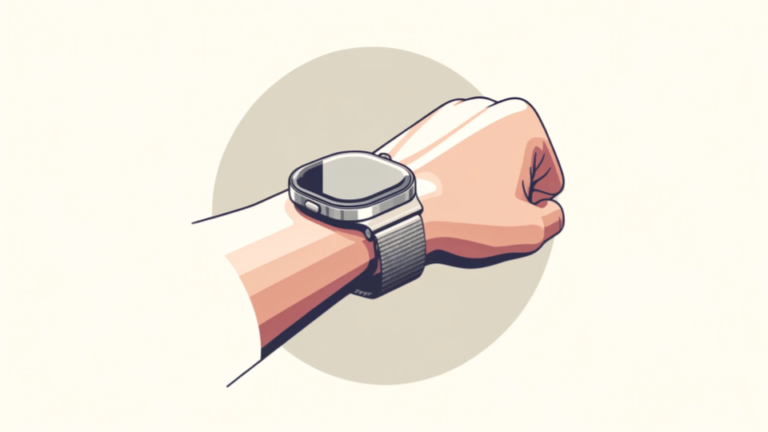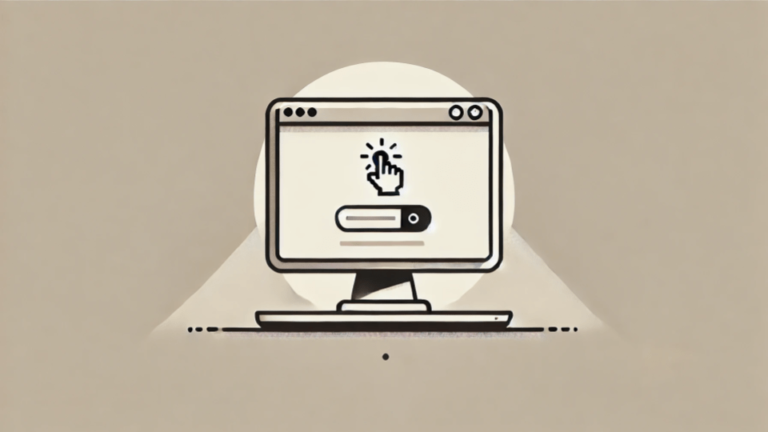Plimes: AI Wearables that’s reforming Elder Care
This Japanese startup is on a mission to transform how we care for the elderly. Founded in 2018, Plimes has carved out a niche in healthtech by developing ‘Gokuri’, a cutting-edge wearable device designed to monitor the swallowing ability of elderly patients. Plimes steps in with technology that tackles one of the most overlooked aspects of elderly care: swallowing difficulties. Their leading product, Gokuri, monitors this vital function in a safe way.

Lessons From Plimes
Leverage Specialist Expertise
The Lesson: Having experts on your team or collaborating with specialists can drive innovation and ensure your product meets professional standards and real-world needs.
Implementation: Build a team with diverse expertise that complements your mission, or establish partnerships with specialists who can bring in-depth knowledge to your project.
How Plimes Implements It: Plimes collaborates with neurologists and geriatric specialists to understand the intricacies of swallowing difficulties and to ensure their device is clinically relevant and effective.
Prioritize User-Friendly Design
The Lesson: For medical devices, ease of use is critical, especially when dealing with elderly users. A user-friendly design ensures that the technology is accessible and can be adopted seamlessly.
Implementation: Incorporate user feedback in the design process to make your product intuitive and easy to use for the target demographic.
How Plimes Implements It: Plimes has designed their wearable device with simplicity in mind, featuring elements that are easy for elderly patients to use, such as large, tactile buttons and clear, audible alerts.
Validate Your Solution Scientifically
The Lesson : Scientific validation not only enhances product credibility but also builds trust with users and stakeholders, crucial for medical technologies.
Implementation: Conduct rigorous testing and research to validate your technology. Publish findings and collaborate with academic institutions to add credibility.
How Plimes Implements It: Plimes conducts clinical trials in partnership with medical research institutions to validate the effectiveness and safety of their device, publishing their findings to build trust and transparency.
Cross-Disciplinary Teams
The Lesson: Blending skills from different disciplines can foster innovation, as it combines diverse perspectives and expertise to solve complex problems. This is especially vital in the health tech sector.
Implementation: Assemble a team that includes experts from both the health sciences and technology sectors. Encourage regular interaction and collaboration between these groups to generate holistic solutions.
How Plimes Implements It: Plimes has built a team that includes medical doctors, data scientists, and hardware engineers who work together from the initial design phase to final product testing, ensuring that every aspect of the device is optimized for both functionality and user needs
Focus on Preventative Solutions
The Lesson & Why It Matters: Developing products that prevent health issues can be more impactful and cost-effective than those treating them. This approach not only improves patient outcomes but also reduces long-term healthcare costs.
Implementation: Identify common preventative areas in your target market and develop solutions that address these needs before they escalate into more serious conditions.
How Plimes Implements It: Plimes’ device is designed to monitor swallowing function early and accurately, which helps in preventing choking incidents and detecting degenerative conditions sooner, potentially leading to early interventions.
The HealthTech sector is booming globally, with an expected market growth of $504.4 Billion by 2025, according to a World Economic Forum. Aging populations are a significant driver. In Japan alone, 28% of the population is over 65, the highest proportion worldwide. This demographic trend presents a pressing need for innovative healthcare solutions like those Plimes offers.
Meet the Minds Behind Plimes
Plimes was founded by a trio of visionaries from the University of Tsukuba: Kenji Suzuki, Tomoya Shimokakimoto, and Dushyantha Jayatilake. Kenji Suzuki, serving as the CEO, is not only a professor of AI and Robotics but also a pioneer in Cybernics research.
COO Tomoya Shimokakimoto holds a PhD in Engineering and a Master’s in Medical Sciences. Before Plimes, he was deeply involved in research at the University of Tsukuba, focusing on practical applications of technology in medicine.
Dushyantha, the CTO, links the worlds of AI and healthcare. With a BSc from the University of Peradeniya and a PhD from Tsukuba, he has been pivotal in translating complex research into user-friendly tech solutions.
The Birth of Plimes
The idea for Plimes sparked in a university lab, driven by a shared mission to use cutting-edge research to solve real-world problems. Launched in April 2018, Plimes was a direct response to the challenges posed by Japan’s aging population. The company’s foundation is built on over a decade of research at Tsukuba’s Artificial Intelligence Laboratory and Center for Cybernics Research.
What Does Plimes Do?
Plimes provide healthcare professionals with tools to offer better, more attentive care without constant manual monitoring. Their mission is developing AI-powered devices that address critical healthcare gaps. They focus on enhancing elderly care through innovative technology. Their flagship product, Gokuri, is an AI-powered wearable device designed to monitor the swallowing ability of elderly patients. This is crucial for preventing choking incidents.
Gokuri – Guarding Every Swallow
Gokuri is a wearable device that is worn around the neck and uses sensors to track swallowing. This data is then analyzed in real-time, alerting caregivers and medical professionals if there’s a risk. This technology is crucial for preventing choking incidents, a common risk among stroke patients and the elderly. Besides monitoring, Gokuri collects data that help medical professionals understand swallowing difficulties better. This data can lead to improved treatments and preventive measures.
The Tech Behind Plimes
- Sensor Technology: Gokuri uses sophisticated sensors placed around the neck to detect subtle movements and sounds during swallowing. These sensors are highly sensitive, capturing data that is invisible to the naked eye and inaudible to the human ear.
- Artificial Intelligence: Plimes leverages cutting-edge AI to analyze and interpret the complex data captured by Gokuri’s sensors. This AI is trained to recognize patterns indicative of normal and abnormal swallowing.
- Real-Time Data Analysis : The data collected by the sensors is processed in real-time with AI algorithms. If Gokuri detects a potential issue, it sends an instant alert to caregivers or medical staff.
- Continuously Learning: The AI systems within Gokuri learn from each instance they monitor. This enhances the device’s accuracy and reliability over time.
Joint Efforts with Cyberdyne
Plimes has established a notable partnership with CYBERDYNE, a leader in robotics and Cybernics technology. This collaboration aims to push the boundaries of medical robotics, focusing on devices like the HAL (Hybrid Assistive Limb).
Big Wins And Accolades
Plimes recently made headlines with their impressive showing at CES 2024. They stood out among Japanese startups at the J-Startup Pavilion. Their innovative approach caught the attention of the Consumer Technology Association, landing them among the prestigious “Best of Innovation” honorees. Plimes benefits from the backing of JETRO, a Japanese government-affiliated organization. This support helps them and other startups make significant impacts globally, showcasing their innovations on the world stage at events like CES.
Financial Milestones
Plimes kicked off with a robust start, raising 150 million yen in a seed funding round. This initial investment came from notable contributors including CYBERDYNE Inc. This initial funding was crucial for early development and market entry. Plimes has also benefited from funds and support by the Japan Science and Technology Agency.
Looking Ahead
Plimes has carved out a niche in the HealthTech landscape by focusing on vital, often overlooked aspects of elderly care. Their core product, Gokuri, has set new standards for monitoring and safety in elderly care. Plimes has not only improved lives but also shown the transformative potential of AI in medical settings.
Their technology offers a glimpse into a future where healthcare is more proactive, personalized, and preventative. As we look to the future, their journey encourages us to think about the broader implications of integrating AI into everyday health management. Are you ready to see what the future holds?
Questions To Ponder
Creative Head – Mrs. Shemi K Kandoth
Content By Dork Company
Art By Dork Company
100 Startups by IIT Madras in 2024: A Landmark Entrepreneurial
IIT Madras, a leader in India’s education and research, embarks on an ambitious journey. In…
Inside Indie Hackers: How a Transparent Community of Founders is
Indie Hackers, established in 2016 by Courtland Allen, is a thriving online community and resource…
Cursor: How 4 MIT Graduates Built the Fastest-Growing AI Startup
Cursor, an AI-powered integrated development environment (IDE), emerged in 2022 as one of the fastest-growing…
Vercel: This Startup Is Quietly Powering the Internet — And
Founded in 2015 by Guillermo Rauch and Naoyuki Kanezawa, Vercel—originally known as Zeit—set out to…
Tella: How This Tiny Team Is Revolutionizing Screen Recording
Tella is a modern screen recording platform built for today’s content creators and video professionals….
CarDekho: How Two IIT Brothers Changed The Way India Bought
CarDekho, a prominent name in the Indian automotive industry, has revolutionized the way people buy,…
Kovai.co: The Startup That Gave ₹14 crore To Its 140
The idea for Kovai.co started when Saravana Kumar, the CEO, was working as a software…




















Leave a Reply
You must be logged in to post a comment.